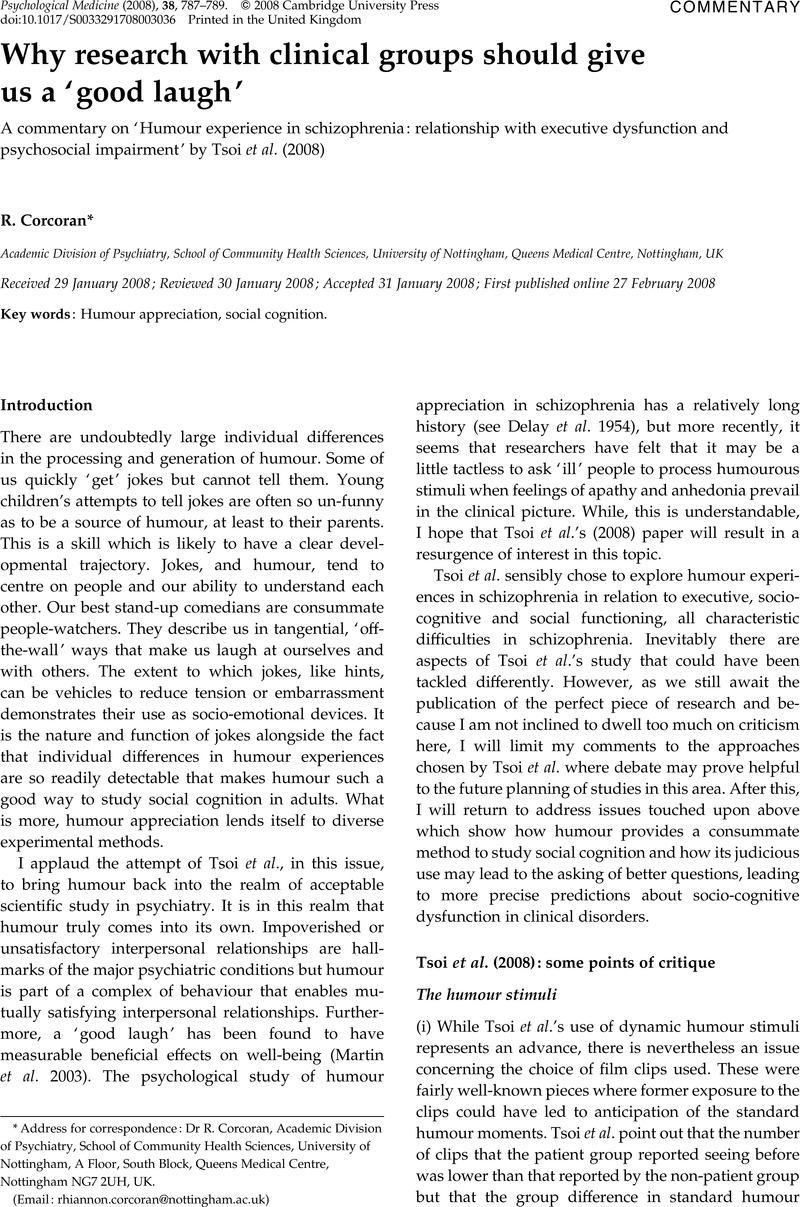Crossref Citations
This article has been cited by the following publications. This list is generated based on data provided by Crossref.
LEE, K.-H.
TSOI, D. T.
and
WOODRUFF, P. W. R.
2009.
Letter to the Editor: A reply to Dr Corcoran.
Psychological Medicine,
Vol. 39,
Issue. 2,
p.
348.
Boyden, Paul
Knowles, Rebecca
Corcoran, Rhiannon
Hamilton, Simon
and
Rowse, Georgina
2015.
A preliminary investigation into theory of mind and attributional style in adults with grandiose delusions.
Cognitive Neuropsychiatry,
Vol. 20,
Issue. 2,
p.
109.
2018.
The Psychology of Humor.
p.
373.



